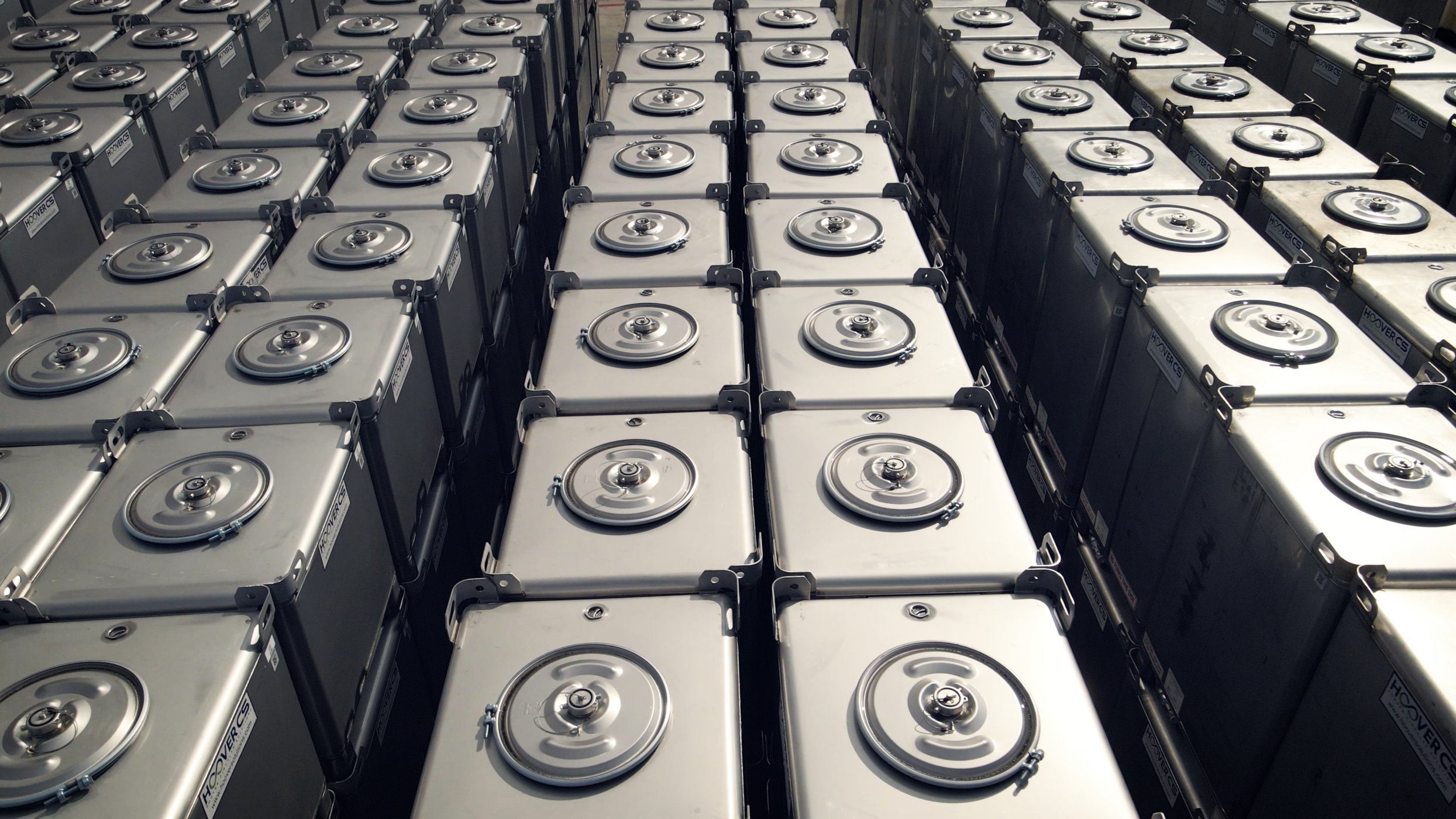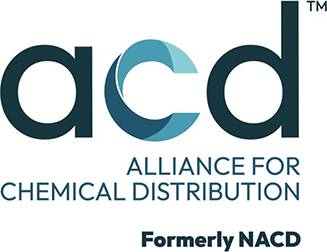As companies that transport bulk liquids focus on more sustainable supply chains, now is the time to transition from wasteful single-use plastic containers to a circular solution, Hoover CS’s reusable stainless-steel IBCs.
Challenges with One-Way Plastic Intermediate Bulk Containers
- Designed for one-time use, one-way IBCs are often disposed of in landfills and contribute to the 400 million tonnes† of global plastic waste produced annually, potentially feeding microplastics into waterways, affecting marine line and local biodiversity.
- Although one-way IBCs can be reused or recycled, the process is complex, costly, and produces greenhouse gas emissions, particularly where the IBC has been used to transport contaminating materials. As a result, recycling or reuse is often not viewed as cost-effective.
- Toxic and/or hazardous product residue in disposed one-way IBCs create a higher risk of ground contamination.
- One-way IBCs have an increased fire risk.‡

Responsible Chemical Packaging
Hoover CS’s fleet of reusable stainless-steel Intermediate Bulk Containers are an ideal alternative to one-way containers. Built to last 25+ years, our sustainable IBCs provide your business with a variety of benefits, including:
- Lengthy useful life, resulting in reduced packaging costs
- Safer handling, reducing chance of spills and minimizing residue
- Rated UN 31 A/Y as authorized by DOT CFR 49 in Packaging Group II & III
- Reduced cost associated with product waste and disposal
- Suitable for storage and transportation of base, specialty, production, and industrial chemicals
- Compatible with Hoover CS’s fleet management technology platform, FleetAI™, facilitating the efficient management of our customers’ fleets of reusable IBCs
- Serviceable at Hoover CS’s network of company-owned and third party service centers
We also support the following industries: industrial coatings & paint; refining and petrochemical; food & beverage; pharmaceutical; and cosmetics.
Environmental Impact Example
The substitution of 2,867 reusable stainless-steel 350-gallon IBCs for 3,030 one-way IBCs in order to deliver 1-million gallons of liquid chemical results in:
- Reduced steel consumption (outer cage) by 110 metric tons
- Reduced HDPE plastic consumption (interior bottle) by 82 metric tons
- Reduced greenhouse gas emissions by 867kg of CO2
- Reduces water consumption by 9,443 m3
- Achieves significant reduction in all environmental impact categories (Global Warming Potential, Acidification Potential, Eutrophication Potential, Smog Formation Potential, Ozone Depletion Potential, Cumulative Energy Demand, Water Consumption)
TRY IT: Our Impact Calculator equips your organization with powerful insights of how reusable containers positively impact the environment.
Supporting a Sustainable Future for All
As a proud supporter of the United Nations’ Sustainable Development Goals, here’s where our sustainable packaging has the biggest environmental impact:
- SDG 6 – Clean Water and Sanitation: Through our state-of-the-art water reclamation process, we’re able to reuse approximately 95% of all water used to wash, flush and service IBCs, Catalyst Bins, and ISO Tanks.
- SDG 12 – Responsible Consumption and Production: As a responsible packaging supplier, we’re committed to creating more value with less waste by providing reusable, circular packaging versus single-use containers.
- SDG 13 – Climate Action: We’re able to reduce carbon emissions & overall waste through our fleet of reliable, safe, and reusable packaging solutions, helping combat climate change.
- SDG 17 – Partnership for the Goals: Our vision is a sustainable future for all, and together, we’ll create strong partnerships and take meaningful actions to support the Global Goals.



